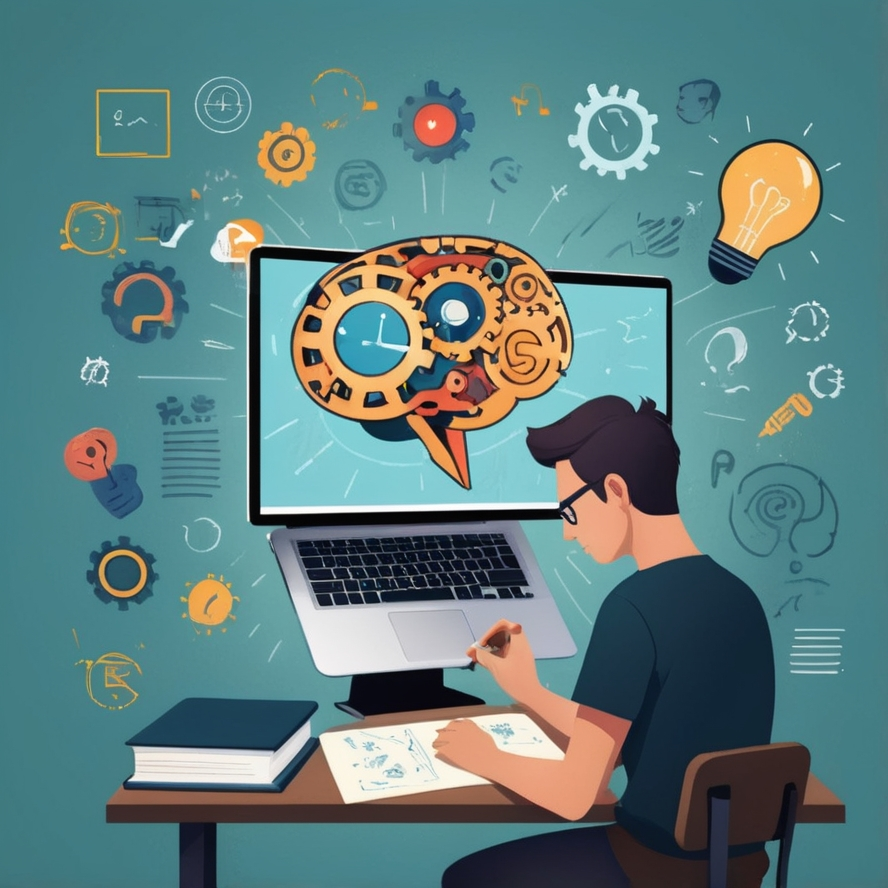
The Importance of Handwriting: "The Pen Is Mightier Than the Keyboard"
Introduction
In an increasingly digital world where typing seems to have replaced handwriting, it's crucial to examine the implications of this shift. A striking study titled "The Pen Is Mightier Than the Keyboard: Advantages of Longhand Over Laptop Note Taking" published in Psychological Science explores the cognitive benefits of handwriting compared to typing. This 2500-word blog post delves into the study, its findings, and its implications for education and intellectual professions.
Study Background and Purpose
The study, conducted by Pam A. Mueller of Princeton University and Daniel M. Oppenheimer of the University of California, Los Angeles, seeks to understand the differences between taking notes by hand and on a laptop in terms of information retention and conceptual understanding.
The initial hypothesis is that handwriting, although slower, promotes better comprehension and memory retention compared to fast typing, which tends to encourage verbatim note-taking without deep cognitive processing.
Study Methodology
The study comprises three distinct experiments:
1. First Experiment:
- Participants: 65 students.
- Procedure: Students watch TED talks and take notes either by hand or on a laptop.
- Assessment: An information retention test is administered 30 minutes after the lecture.
2. Second Experiment:
- Participants: 151 students.
- Procedure: Similar to the first experiment, but with a specific instruction for students using laptops not to transcribe the lectures verbatim.
- Assessment: Immediate and delayed retention tests (one week later).
3. Third Experiment:
- Participants: 109 students.
- Procedure: Students take notes on lectures, and three types of tests are administered one week later: a factual test, a conceptual understanding test, and an application test.
Study Results
The results of the three experiments consistently show that students who take notes by hand score better on conceptual understanding tests than those who use a laptop. Here is a summary of the key findings:
1. Information Retention:
- Students taking handwritten notes demonstrated better retention of factual and conceptual information, particularly in the long term.
2. Conceptual Understanding:
- Handwritten notes seem to encourage deeper cognitive processing, leading to better understanding of the concepts discussed in the lectures.
3. Performance in Tests:
- Students taking notes on laptops tend to transcribe lectures verbatim, which, while detailed, does not encourage significant synthesis and assimilation of information.
Analysis and Interpretation
The findings of this study highlight several crucial points about how we learn and retain information:
1. Deep Cognitive Processing:
- Handwriting forces students to synthesize and rephrase information, contributing to deeper cognitive processing. This active reflection enhances understanding and memory.
2. Limitations of Typing:
- Fast typing allows for more notes but often in a superficial manner. Verbatim transcription may seem advantageous in terms of the quantity of information captured, but it does not foster critical thinking.
3. Educational Implications:
- The study suggests important implications for teaching and learning methods. Encouraging handwriting could improve academic outcomes and student comprehension.
Implications for Intellectual Professions
The results of this study are not limited to the educational context; they also have implications for intellectual professions, such as researchers, lawyers, doctors, and other professionals requiring deep understanding and analysis of information.
1. Research and Development:
- Researchers can benefit from handwriting by synthesizing and critically analyzing information, leading to deeper insights and innovative ideas.
2. Legal Profession:
- Lawyers might find handwritten notes helpful for analyzing and understanding complex legal documents, preparing arguments, and strategizing cases.
3. Medical Field:
- Doctors and medical professionals often need to synthesize large amounts of information quickly. Handwriting could aid in better retention and understanding of medical knowledge, ultimately improving patient care.
Conclusion
The study "The Pen Is Mightier Than the Keyboard" offers compelling evidence that handwriting has significant cognitive benefits over typing. By promoting deeper cognitive processing, better retention, and enhanced conceptual understanding, handwriting proves to be a powerful tool in both educational settings and intellectual professions. Encouraging the use of handwritten notes could lead to improved learning outcomes and more effective professional practices.
For more detailed information, you can access the study directly from Psychological Science:
[The Pen Is Mightier Than the Keyboard: Advantages of Longhand Over Laptop Note Taking](https://journals.sagepub.com/doi/abs/10.1177/0956797614524581).